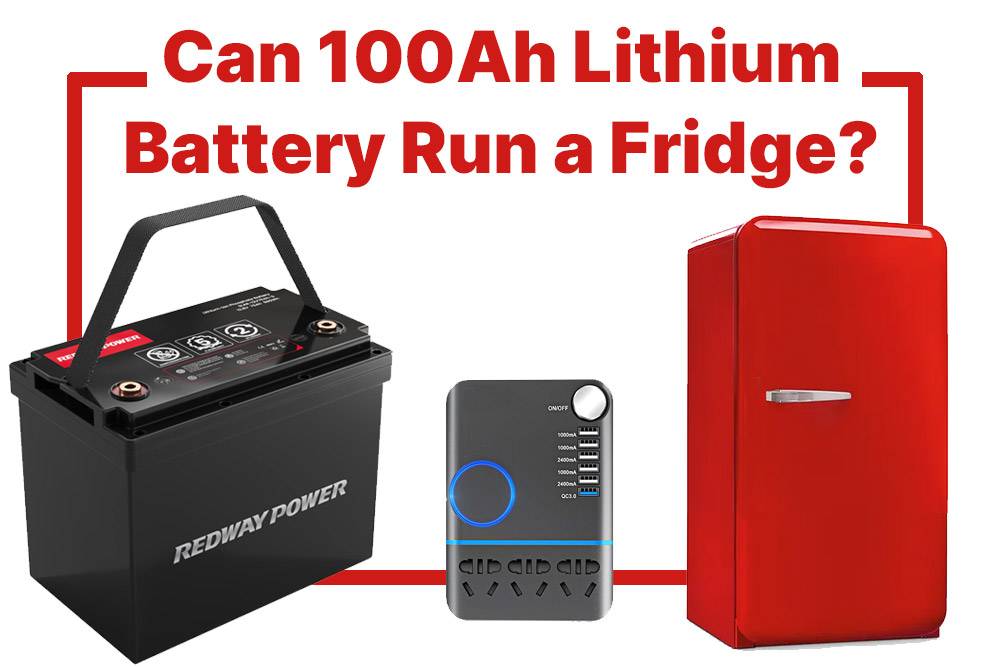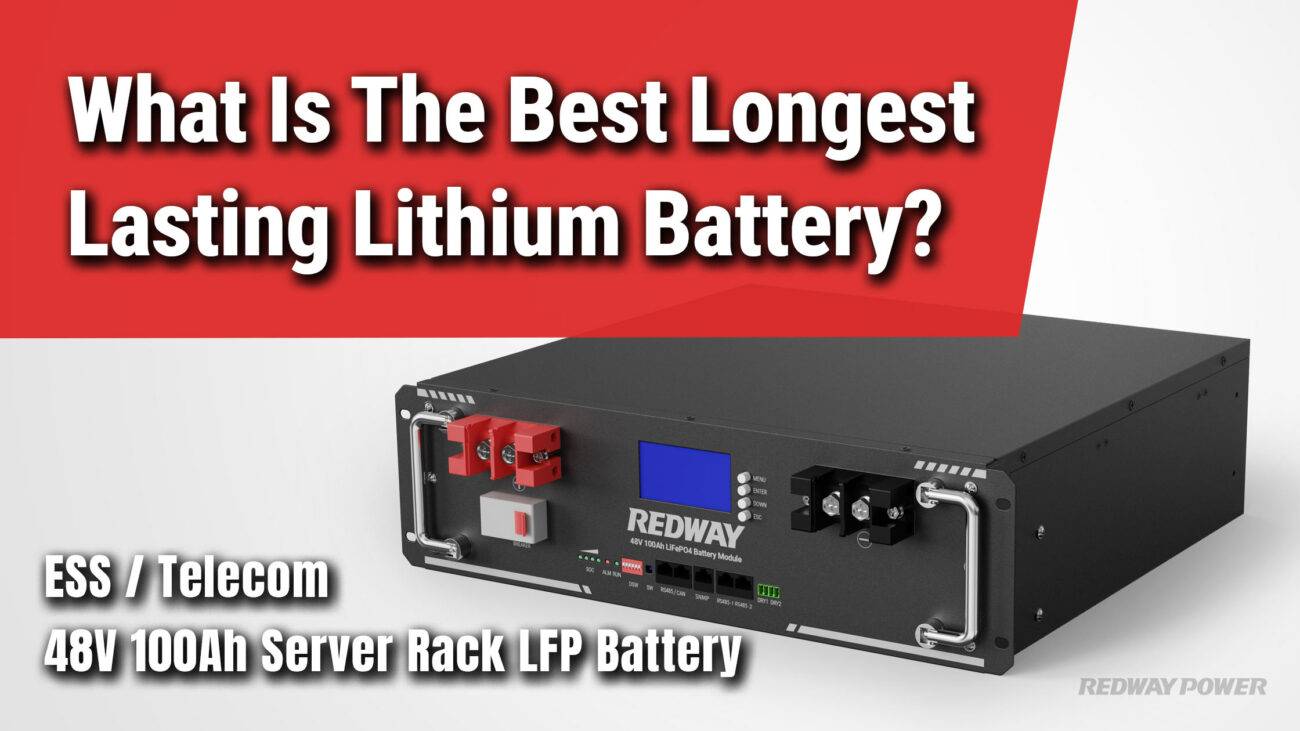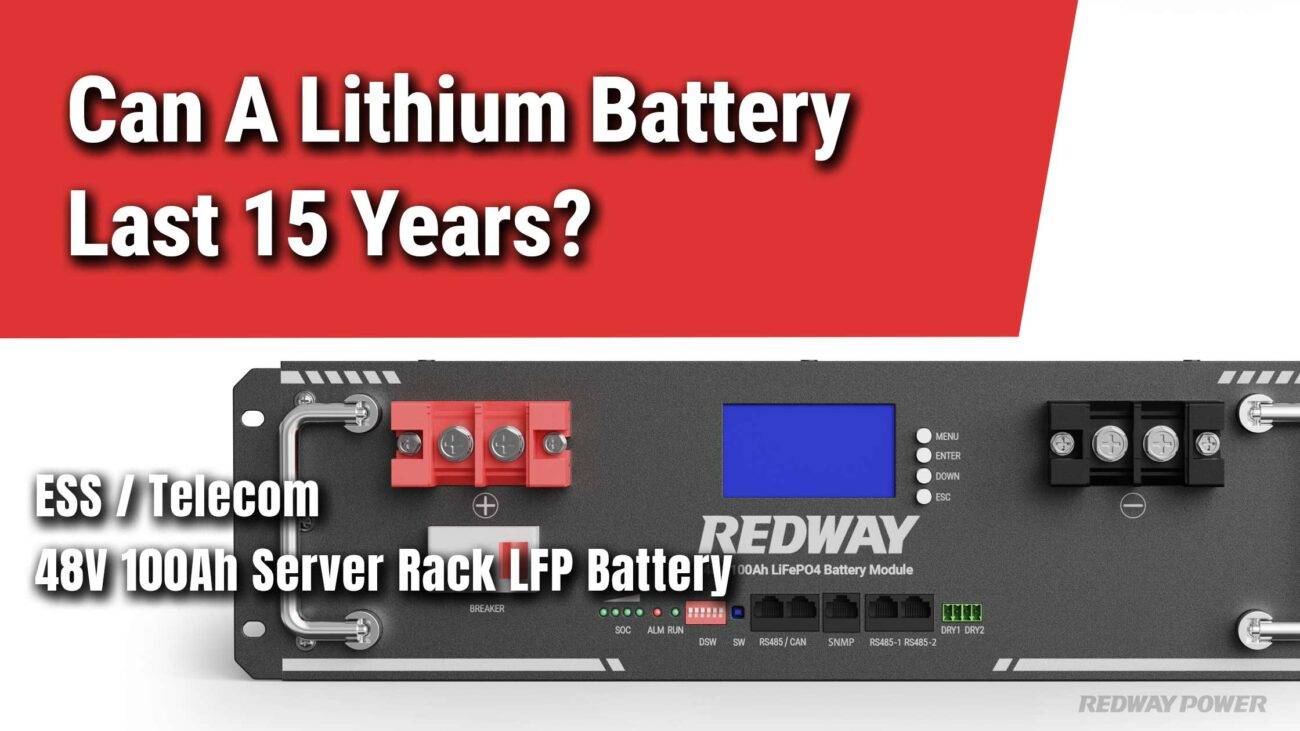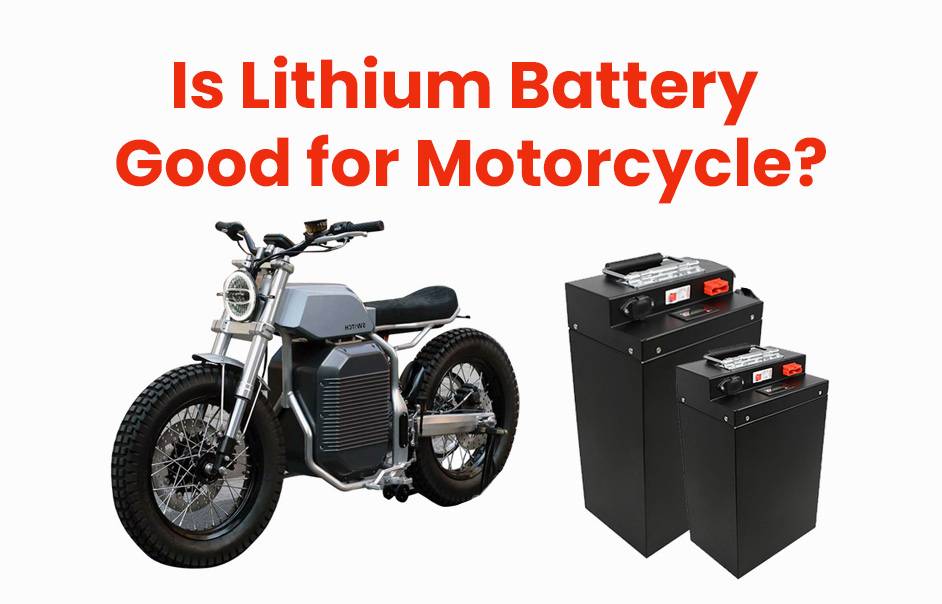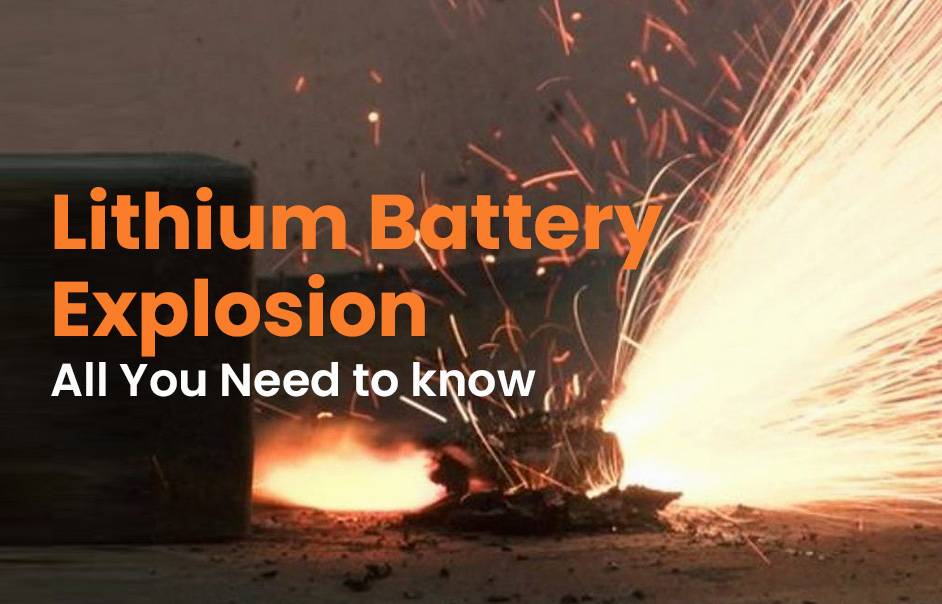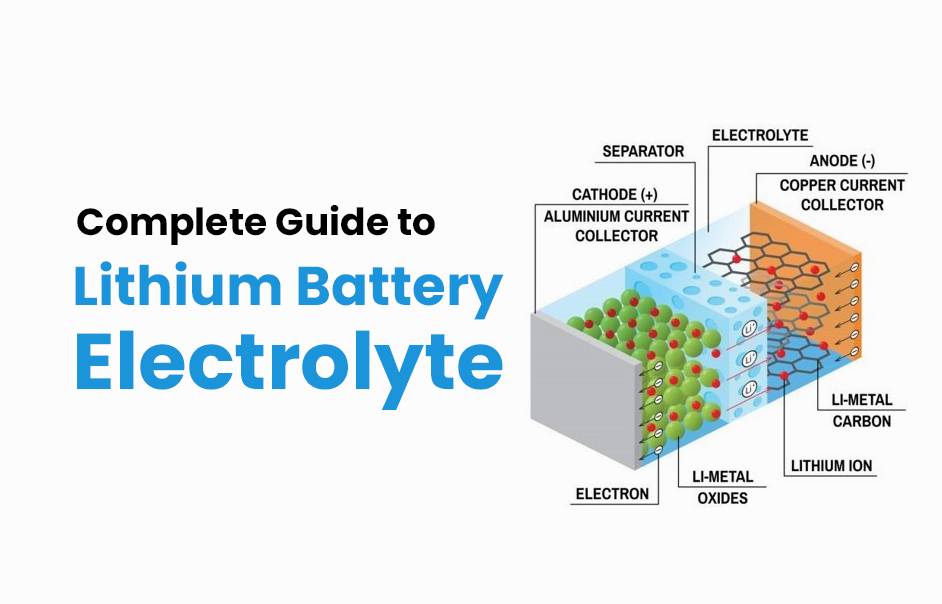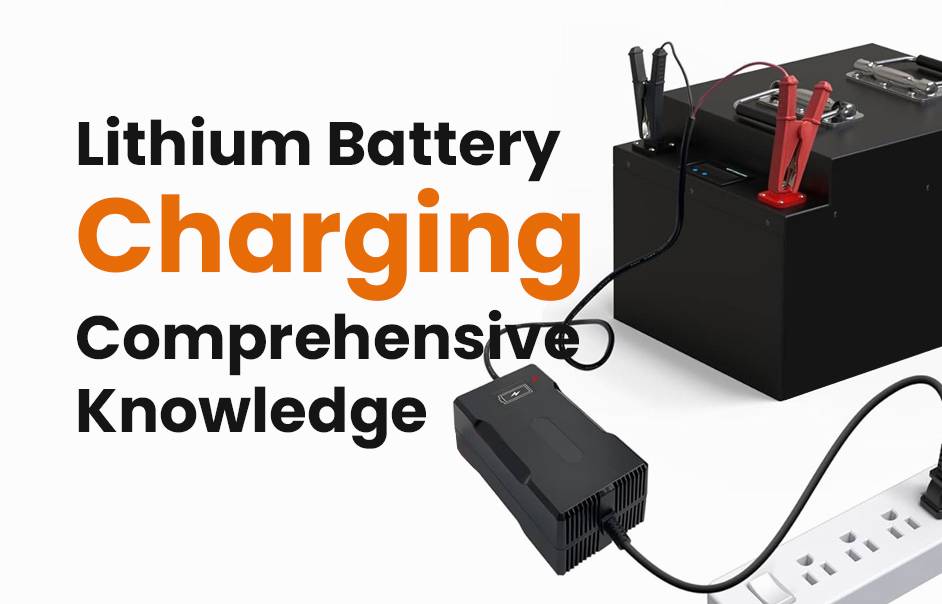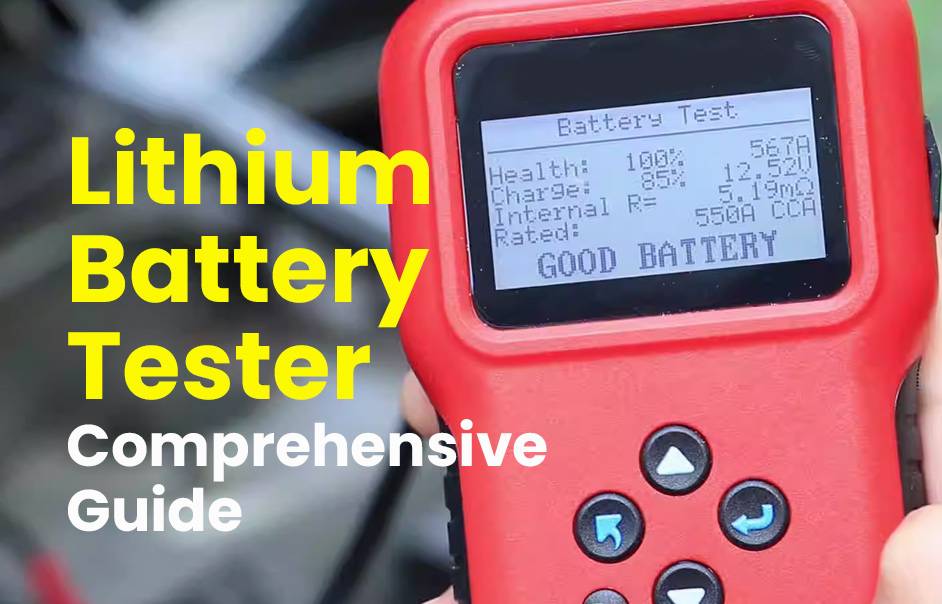- Forklift Lithium Battery
-
48V
- 48V 210Ah
- 48V 300Ah
- 48V 420Ah (949 x 349 x 569 mm)
- 48V 420Ah (950 x 421 x 450 mm)
- 48V 456Ah
- 48V 460Ah (830 x 630 x 590 mm)
- 48V 460Ah (950 x 421 x 450 mm)
- 48V 460Ah (800 x 630 x 600 mm)
- 48V 460Ah (820 x 660 x 470 mm)
- 48V 500Ah
- 48V 560Ah (810 x 630 x 600 mm)
- 48V 560Ah (950 x 592 x 450 mm)
- 48V 600Ah
- 48V 630Ah
-
48V
- Lithium Golf Cart Battery
- 12V Lithium Battery
12V 150Ah Lithium RV Battery
Bluetooth App | BCI Group 31
LiFePO4 Lithium
Discharge Temperature -20°C ~ 65°C
Fast Charger 14.6V 50A
Solar MPPT Charging - 24V Lithium Battery
- 36V Lithium Battery
- 48V Lithium Battery
-
48V LiFePO4 Battery
- 48V 50Ah
- 48V 50Ah (for Golf Carts)
- 48V 60Ah (8D)
- 48V 100Ah (8D)
- 48V 100Ah
- 48V 100Ah (Discharge 100A for Golf Carts)
- 48V 100Ah (Discharge 150A for Golf Carts)
- 48V 100Ah (Discharge 200A for Golf Carts)
- 48V 150Ah (for Golf Carts)
- 48V 160Ah (Discharge 100A for Golf Carts)
- 48V 160Ah (Discharge 160A for Golf Carts)
-
48V LiFePO4 Battery
- 60V Lithium Battery
-
60V LiFePO4 Battery
- 60V 20Ah
- 60V 30Ah
- 60V 50Ah
- 60V 50Ah (Small Size / Side Terminal)
- 60V 100Ah (for Electric Motocycle, Electric Scooter, LSV, AGV)
- 60V 100Ah (for Forklift, AGV, Electric Scooter, Sweeper)
- 60V 150Ah (E-Motocycle / E-Scooter / E-Tricycle / Tour LSV)
- 60V 200Ah (for Forklift, AGV, Electric Scooter, Sweeper)
-
60V LiFePO4 Battery
- 72V~96V Lithium Battery
- Rack-mounted Lithium Battery
- E-Bike Battery
- All-in-One Home-ESS
- Wall-mount Battery ESS
-
Home-ESS Lithium Battery PowerWall
- 24V 100Ah 2.4kWh PW24100-S PowerWall
- 48V 50Ah 2.4kWh PW4850-S PowerWall
- 48V 50Ah 2.56kWh PW5150-S PowerWall
- 48V 100Ah 5.12kWh PW51100-F PowerWall (IP65)
- 48V 100Ah 5.12kWh PW51100-S PowerWall
- 48V 100Ah 5.12kWh PW51100-H PowerWall
- 48V 200Ah 10kWh PW51200-H PowerWall
- 48V 300Ah 15kWh PW51300-H PowerWall
PowerWall 51.2V 100Ah LiFePO4 Lithium Battery
Highly popular in Asia and Eastern Europe.
CE Certification | Home-ESS -
Home-ESS Lithium Battery PowerWall
- Portable Power Stations
Lithium Battery vs Alkaline Battery, Comprehensive Guide
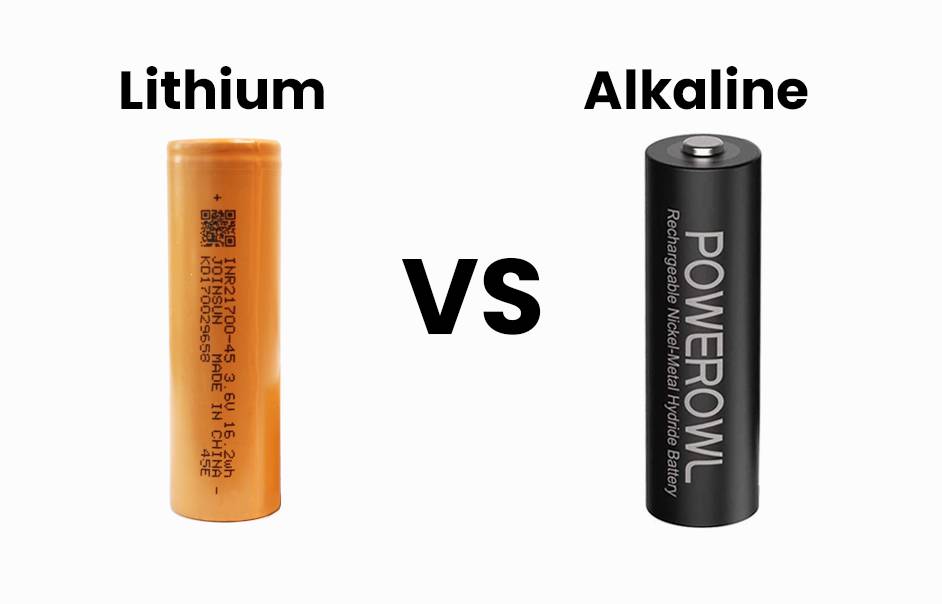
Tired of constantly changing batteries? Explore the world of lithium and alkaline batteries in our comprehensive guide. Delve into their differences and discover the better option for your needs. Join us on an energizing journey through the lithium battery vs alkaline battery debate, empowering you with the knowledge to keep your devices running smoothly. Get ready to power up and make informed choices!
What are Lithium Battery?
Lithium batteries, specifically lithium-ion (Li-ion) batteries, are rechargeable batteries that utilize the reversible intercalation of Li+ ions into electronically conducting solids. They offer higher specific energy, energy density, efficiency, and longer cycle and calendar life compared to other rechargeable batteries. Lithium-ion batteries have revolutionized portable consumer electronics, electric cars, energy storage, and various industries. Their superior performance and versatility make them a popular choice for reliable and high-performance power solutions.
What are Alkaline Battery?
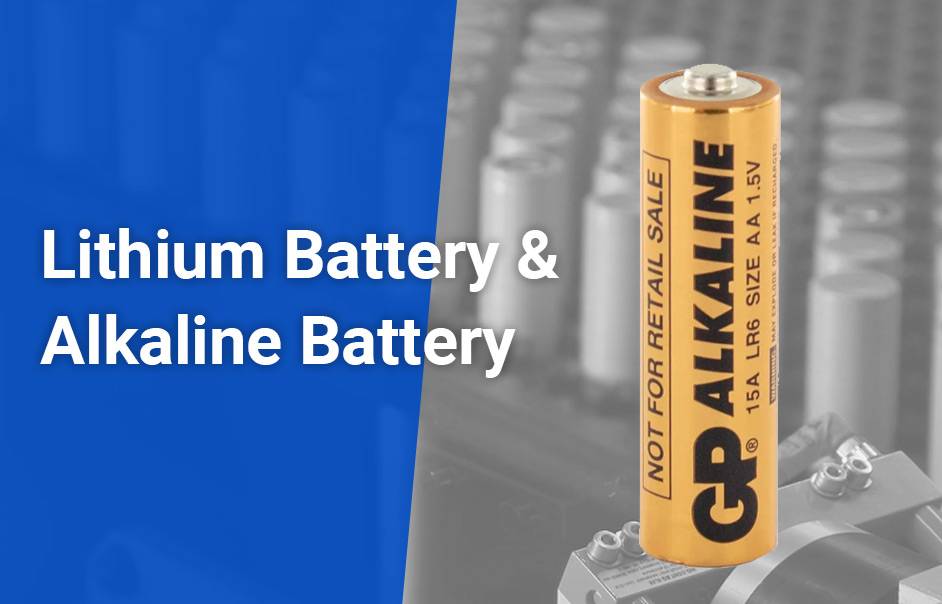
Lithium Battery vs Alkaline Battery in Chemical Composition
Lithium Battery vs Alkaline Battery in Cost
When comparing the cost of lithium batteries and alkaline batteries, it is important to consider the lifespan. While lithium batteries may cost 5 times more than alkaline batteries, they last 8 or even 10 cycles longer. This longer lifespan can result in cost savings over time, making lithium batteries a cost-effective choice for applications that require longer-lasting power.
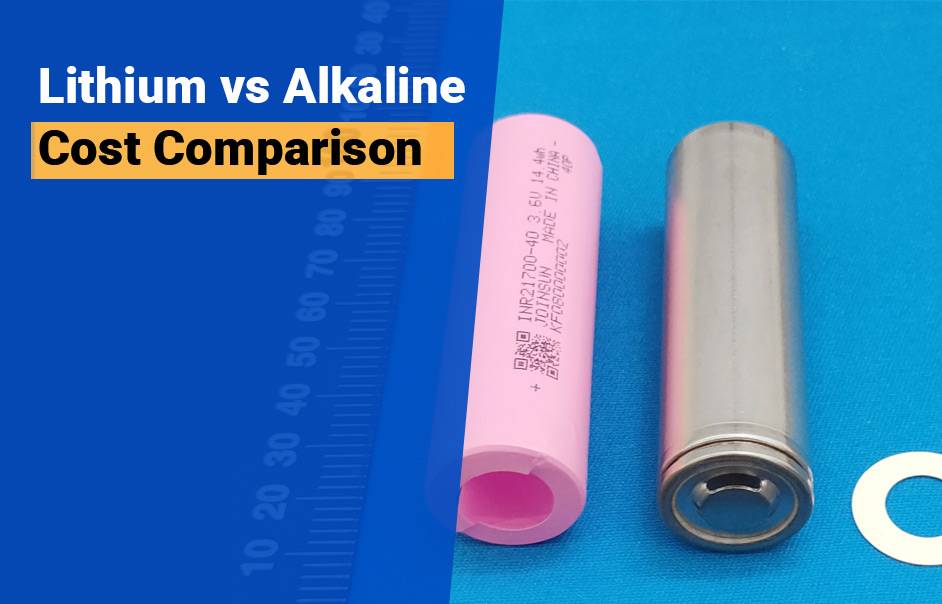
Let’s compare the cost aspects of Lithium and Alkaline batteries:
- Lithium Batteries:
- Higher Initial Cost: Lithium batteries tend to be more expensive upfront compared to alkaline batteries.
- Long-Term Savings: Despite the initial higher cost, lithium batteries offer extended longevity and durability. Their longer lifespan may result in cost savings over time.
- Ideal for Specific Applications: Lithium batteries are commonly used in devices where reliability and performance are critical, such as cameras, medical equipment, and high-drain electronics.
- Alkaline Batteries:
- Affordability: Alkaline batteries are widely available and more affordable initially.
- Moderate Lifespan: They have a moderate lifespan and are suitable for everyday devices like remote controls, clocks, and toys.
- Consideration: While alkaline batteries are cost-effective, their shorter lifespan may lead to more frequent replacements.
In summary, the choice between lithium and alkaline batteries depends on factors like initial budget, device requirements, and long-term considerations. Assess your specific needs to make an informed decision!
Lithium Battery vs Alkaline Battery in Energy Efficiency
Lithium Battery vs Alkaline Battery in Shelf Life and Disposal
Lithium batteries generally have a longer shelf life compared to alkaline batteries, lasting up to 6 times longer. Some lithium batteries can hold their power and last up to 20 years when properly stored. Proper disposal of both lithium and alkaline batteries is crucial for environmental safety and compliance. Understanding the differences in shelf life and disposal helps in making informed decisions about battery usage and disposal practices.
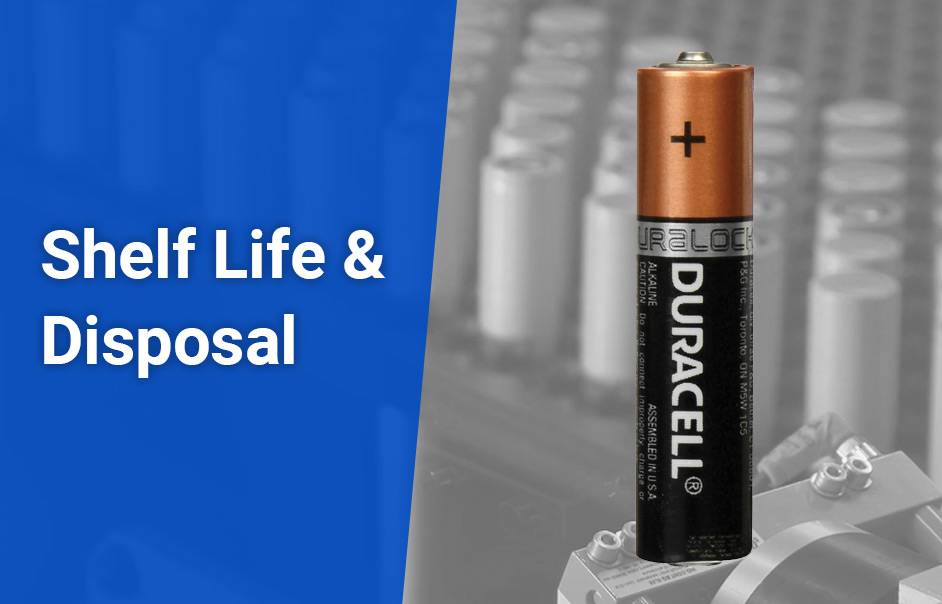
Shelf Life:
- Lithium Batteries
- Advantage:
- Retain charge for extended periods.
- Ideal for emergencies or long-term storage.
- Advantage:
- Alkaline Batteries
- Concern:
- Lose charge more quickly when not in use.
- Prone to quicker discharge during storage.
- Concern:
Disposal:
- Lithium Batteries
- Consideration:
- Classified as hazardous waste.
- Never dispose of in regular household garbage.
- Consideration:
- Alkaline BatteriesConsideration:
- Generally non-hazardous.
- Local recycling programs available for sustainable disposal.
Choosing between lithium and alkaline batteries depends on your prioritization of longevity or ease of disposal. Always check local regulations to make informed decisions about battery disposal.
Lithium Battery vs Alkaline Battery in Applications
Lithium and lithium-ion batteries are suitable for applications that require low- and high-temperature variances and work well outdoors. They can withstand a wider range of temperature conditions. Alkaline batteries, on the other hand, are best suited for electronics that require low or medium power. Understanding the differences in application helps in choosing the appropriate battery type for specific needs.
Lithium Batteries:
- Portable Electronics:
- Devices: Smartphones, tablets, laptops, digital cameras, smartwatches.
- Advantages: High energy density, lightweight design, suitable for compact and portable gadgets.
- Long-Term Storage:
- Characteristics: Low self-discharge rate.
- Use Case: Ideal for devices requiring intermittent usage with extended storage periods.
- Critical Backup Systems:
- Industries: Healthcare, transportation, uninterruptible power supplies (UPS).
- Benefits: Higher energy capacity, capable of handling high current demands.
Alkaline Batteries:
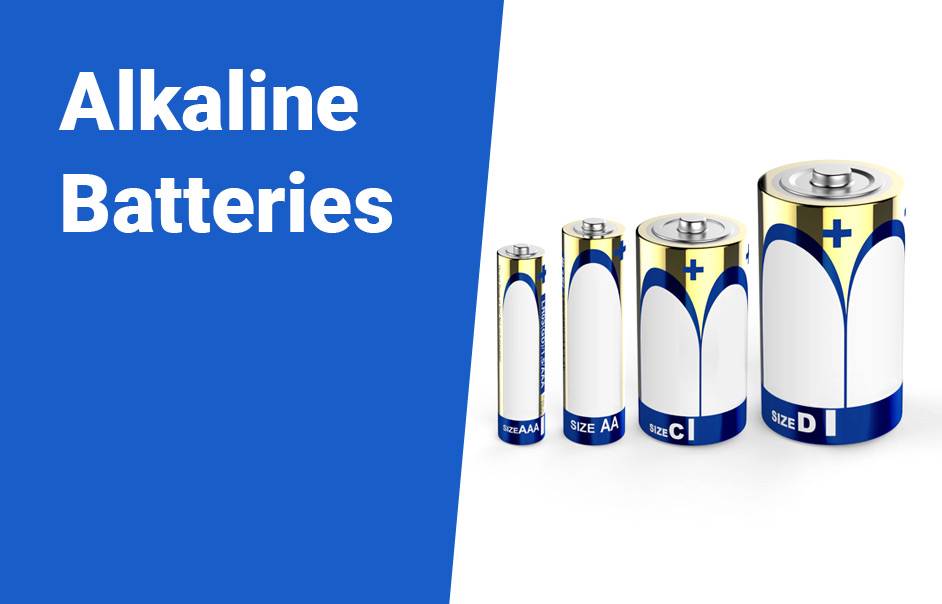
- Everyday Household Items:
- Devices: Remote controls, flashlights, toys, clocks, smoke detectors.
- Advantages: Reliable power output over an extended period, suitable for moderate drain conditions.
- Cost-Effective Solutions:
- Considerations: Often more budget-friendly upfront.
- Use Case: Commonly chosen for applications where initial cost is a primary factor.
- General Applications:
- Scenario: Well-suited for devices with standard power requirements.
Choosing between lithium and alkaline batteries should be based on specific needs, including device performance requirements and budget considerations.
Lithium Battery vs Alkaline Battery in Environmental Impact
Lithium batteries are environmentally friendly, making them a preferred choice for reducing environmental impact. Alkaline batteries, while having a higher energy density and longer shelf life, are prone to leakages involving potassium hydroxide. Understanding the environmental impact helps in making informed decisions about battery usage and disposal practices.
When assessing the environmental impact of lithium and alkaline batteries, notable differences emerge:
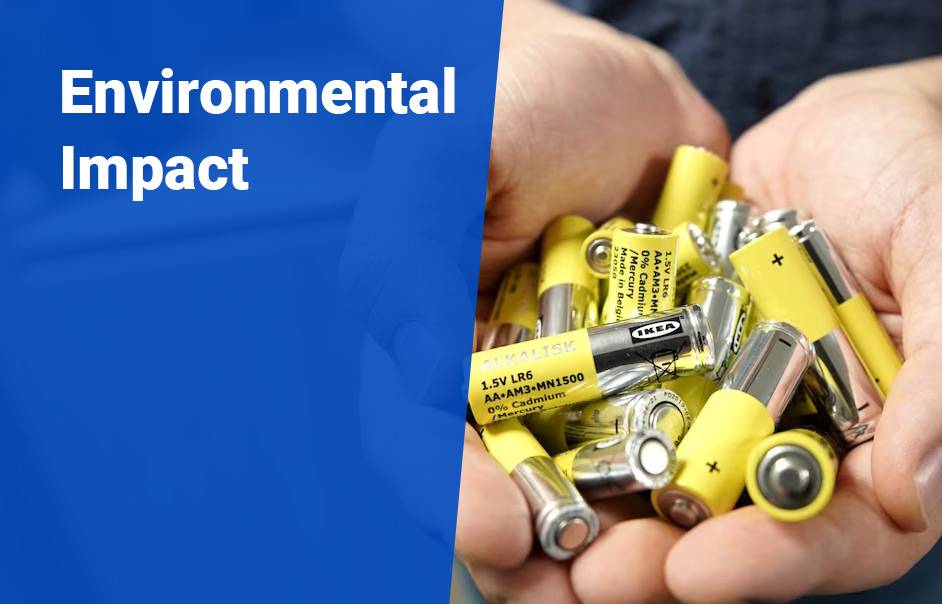
- Toxic Components:
- Lithium Batteries: Lack harmful heavy metals like mercury or cadmium, minimizing environmental pollution risks when properly disposed of.
- Alkaline Batteries: Contain toxic materials, presenting a higher risk of soil and water contamination if not disposed of responsibly.
- Reusability:
- Lithium Batteries: Rechargeable, reducing the number of discarded units and decreasing landfill waste.
- Alkaline Batteries: Single-use, contributing to higher disposal rates and environmental impact.
- Concerns with Lithium Extraction:
- Lithium Batteries: Extraction process raises concerns about potential negative impacts on local ecosystems, necessitating responsible management.
While acknowledging concerns in lithium extraction, the lower toxicity and reusability of lithium batteries make them a more environmentally friendly choice compared to alkaline batteries.
Lithium Battery vs Alkaline Battery, Which to choose?
FAQs
How much longer do lithium batteries last vs alkaline?
Which lasts longer, lithium or alkaline batteries?
Is it okay to use alkaline batteries instead of lithium?
What is the biggest problem with lithium batteries?
What shortens the life of lithium batteries?
Do lithium batteries last longer in cold weather?
Are lithium batteries being phased out?
Can you use alkaline batteries for everything?
What devices suit Lithium batteries for extended periods?
Lithium batteries are ideal for high-drain devices that require a consistent power source over an extended period. Devices such as digital cameras, GPS units, and handheld gaming consoles benefit from the long-lasting performance of lithium batteries. These types of gadgets often demand a significant amount of power to function efficiently, making lithium batteries the perfect choice to keep them running smoothly. Additionally, lithium batteries are lightweight and have a longer shelf life compared to alkaline batteries. This makes them well-suited for use in devices like wireless keyboards, remote controls, and LED flashlights where reliability is key.
Can devices for Alkaline batteries safely use Lithium ones?
When it comes to the compatibility of devices meant for alkaline batteries with lithium ones, there are a few key considerations to keep in mind.
While both types of batteries may have similar sizes such as AA or AAA, it’s important to note that lithium batteries typically have a higher voltage than alkaline ones. This means that using a lithium battery in a device designed for alkaline batteries could potentially cause damage to the device.
Furthermore, some devices may not be able to handle the higher power output of lithium batteries, which could result in overheating or other safety issues. It’s always best to consult the manufacturer’s recommendations for your specific device before making the switch from alkaline to lithium batteries.
While it may be tempting to interchange different types of batteries, it’s crucial to prioritize safety and performance by using the recommended battery type for your devices.
* Most lithium-ion AA batteries run at 3.7V, and using the incorrect voltage in a device can harm both the device and the batteries. However, certain Li-ion batteries are specifically designed to have the same voltage as alkaline batteries, making them interchangeable.

Are Energizer Lithium AA batteries suitable for long-term storage?
When it comes to long-term storage, Energizer Lithium AA batteries are a reliable choice for keeping your devices powered up. These batteries have a shelf life of up to 20 years, making them ideal for storing in emergency kits or electronic devices that may not be used frequently.
Unlike traditional alkaline batteries, Energizer Lithium AA batteries can maintain their power for extended periods without the risk of leakage or corrosion. This means you can confidently store them away and trust that they will still be ready to use when needed.
Whether you’re stocking up on backup power supplies for camping trips or simply want to have spare batteries on hand for emergencies, Energizer Lithium AA batteries offer peace of mind knowing that they will hold their charge effectively over time. Plus, with their lightweight design and high energy density, these batteries are convenient and efficient options for long-term storage solutions.
Can Lithium batteries be safely used in Alkaline devices?
Have you ever wondered if Lithium batteries can be safely used in devices designed for Alkaline batteries? The short answer is yes, but with caution. While both types of batteries have different chemistries and voltages, it is possible to use Lithium batteries in devices that typically run on Alkaline ones. However, it’s important to note that using a higher voltage battery may lead to overheating or damage to the device.
Lithium batteries tend to have a longer lifespan and perform better in extreme temperatures compared to Alkaline batteries. This means that if you decide to switch over from Alkaline to Lithium, you may notice an improvement in performance and longevity of your device. Just make sure the device can handle the higher voltage output of Lithium batteries before making the switch!
Are Eneloop batteries reliable for leakage prevention?
Eneloop batteries are known for their high-quality construction, which includes a unique design that minimizes the risk of leakage. This makes them a popular choice for devices where leakage could cause damage or malfunctions.
When deciding between Lithium and Alkaline batteries, it’s essential to consider the specific needs of your devices. Lithium batteries are ideal for high-drain devices requiring long-term power storage, while Alkaline batteries are suitable for everyday use in a wide range of gadgets.
Both types of batteries have their advantages and limitations. By understanding the differences between them and choosing the right one for each device, you can ensure optimal performance and longevity.
How do lithium batteries deliver power throughout the discharge cycle compared to lead acid batteries?
Lithium batteries maintain a steady voltage throughout most of their discharge cycle, providing consistent power. Lead-acid batteries experience a significant voltage drop as they discharge, resulting in reduced power output towards the end of their cycle.
How does the cycle life of lithium batteries compare to that of SLA batteries?
Lithium batteries typically offer 2,000 to 5,000 cycles, significantly longer than SLA batteries, which usually provide around 300 to 500 cycles. This extended cycle life reduces the need for frequent replacements.
What factors should be considered when choosing between lithium and lead acid batteries?
Consider factors such as cycle life, weight, charging time, cost, energy density, and maintenance needs. Lithium batteries offer longer life and less maintenance, while lead acid batteries are generally less expensive but heavier and shorter-lived.
Why is the weight of lithium batteries advantageous in certain applications compared to SLA batteries?
Lithium batteries are lighter than SLA batteries, making them ideal for applications where weight is a critical factor, such as in electric vehicles, drones, and portable electronics. This weight reduction enhances efficiency and performance.
Why does a flashlight with a dying SLA battery dim over time, and how would this differ with a lithium battery?
As SLA batteries discharge, their voltage drops significantly, causing the flashlight to dim. In contrast, lithium batteries maintain a steady voltage throughout most of their discharge cycle, providing consistent brightness until the battery is nearly depleted.
How does the capacity of lithium batteries compare to lead acid batteries at different discharge rates?
Lithium batteries generally have a higher capacity and maintain performance at various discharge rates compared to lead-acid batteries. They deliver more usable energy, particularly at higher discharge rates.
What are the general performance comparisons between lithium and lead acid batteries?
Lithium batteries outperform lead-acid batteries in terms of cycle life, weight, charging speed, and energy density. Lead-acid batteries are generally cheaper but have lower efficiency and require more maintenance.
How do the charging times of lithium batteries compare to SLA batteries?
Lithium batteries charge faster than SLA batteries, often reaching full charge in a fraction of the time required for lead-acid batteries. This quicker charging reduces downtime and improves overall efficiency.
Why might a lower capacity lithium battery be more cost-effective than a lead acid battery for the same application?
Despite a lower capacity, a lithium battery can be more cost-effective due to its longer cycle life, lower maintenance requirements, and better performance over time. This results in overall cost savings compared to frequently replacing lead-acid batteries.


















